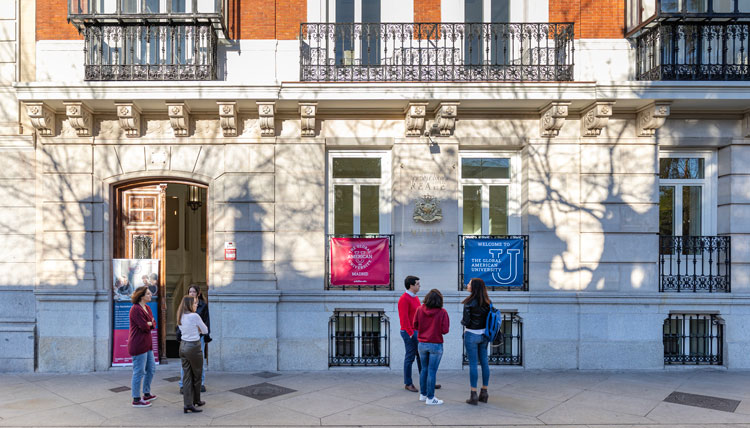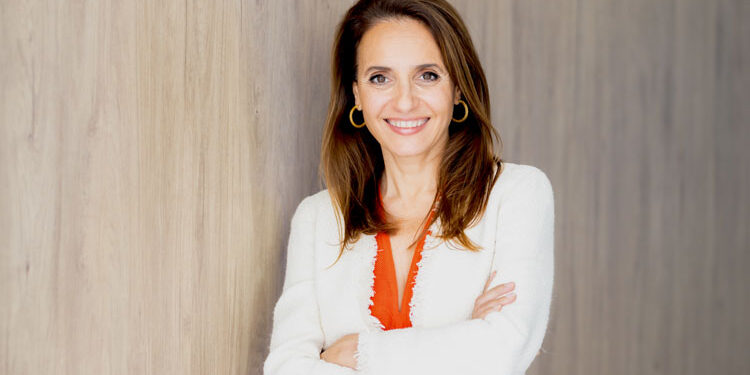Marta Muñiz
CEO of Schiller University
Juan David Latorre
Founded in 1964 by Dr. Walter Leibrecht, the Schiller International University has just turned 60, with the aim of providing students with an exceptional education geared towards developing an international career.
Its campuses in Tampa, Paris, Madrid and Heidelberg bear witness to the multicultural approach that has characterized this university since its inception.
The building of the Schiller University in Madrid (Paseo de Recoletos 35, very close to the Plaza de Colón) has been equipped with the most modern facilities and technology. With more than 3,000 square meters, it houses advanced learning spaces and provides the necessary conditions that demand the methodology of this University, based on experiential learning and digital educational technology, and the employability of its students as a fundamental objective.
We interviewed the CEO and president of the Schiller International University, Marta Muñiz, who asked us about what defines this American institution, pioneer in its concept of incorporating multicultural immersive experiences as levers of learning.
What does the Schiller International University offer to its students that sets it apart from other universities?
Schiller International University is distinguished by offering an education characterized by its international focus through its multi-campus model, allowing students to move freely between the United States, France, Germany and Spain. In addition, our students can obtain a dual degree-American and European-thanks to our agreements with the University of Roehampton in the UK and Dublin Business School in Ireland.
We implement an educational model based on experiential learning and real-world challenge resolution, allowing students to develop practical skills while collaborating on projects with international companies and organizations. In addition, our methodology integrates cutting-edge educational technology and a personalized approach, ensuring that our students are fully prepared to face the challenges of the global market.
Our graduates are prepared, both personally and professionally, to build an international career anywhere in the world. This preparation is based on strong academic background, the development of interpersonal skills and access to a wide network of contacts within our global community, which has more than 20,000 alumni spread around the world.
Do you believe that international and multicultural university education can be used as an antidote to the current polarization, in the need to train future professionals with a global vision and committed to the common good, and how is this achieved with the Schiller University academic model?
I am convinced of it. We were pioneers when, in 1964, we raised the need to train future professionals in international environments with the experience and sensitivity needed to build consensus in a world recovering from the ravages of two world wars. International and multicultural education is key to fostering empathy, understanding and collaboration between different cultures and people.
At Schiller, our students come from more than 130 nationalities, creating a diverse and inclusive environment and fostering the development of multicultural competencies. In class, students learn to confront points of view and to live with radically different solutions to problems, and this process enriches them personally and academically.
Our academic model integrates the resolution of global problems through real projects in collaboration with institutions such as the United Nations or companies such as EY, IBM, or Ecoalf, among others. In this way, we prepare future leaders to tackle complex problems with sustainable, ethical and creative solutions, promoting a positive impact on society. Our graduates are global citizens who understand the challenges we face and are committed to leading the changes needed to solve them.
In addition to the knowledge of one’s own country and the geopolitical situation of the world, culture, education, empathy and “knowing how to be” are characteristic of diplomacy. Are these attitudes taught in the Master’s degree in International Relations and Diplomacy at the University?
Yes, our International Relations and Diplomacy program, both in undergraduate and graduate studies, is based on a comprehensive approach that combines theory and practice. In addition to developing analytical skills in geopolitical and diplomatic matters, the programme includes training in interpersonal skills such as negotiation, conflict resolution and intercultural communication. We also promote participation in diplomatic simulations, international forums and interaction with leading professionals to ensure that our students do not only acquire technical knowledge, but also the attitudes needed to be effective diplomats and global leaders.
In our Master’s degree in International Relations and Diplomacy, as well as in Sustainability, we have the collaboration of UNITAR (Institute for Training and Research of the United Nations). Thanks to this collaboration, UNITAR not only actively participates in the design and delivery of the program, but also offers students the opportunity to graduate at the United Nations in Switzerland and have a week of fellowship before graduation, as a unique learning and networking experience. In addition, the best students have the possibility of a professional internship period of between 1 and 3 months at any of the international offices of the United Nations.
This collaboration with a leading institution in international relations such as UNITAR ensures that our students are prepared to face the challenges of modern diplomacy and excel on the international scene.
What is your opinion on the need for and coexistence between public and private universities?
Both models are essential to offer diverse and tailored choices for the needs of students. Public universities play a key role in providing accessible education, while private universities such as Schiller provide innovative programs, curriculum flexibility and an international network. Collaboration between the two can strengthen the education system as a whole, combining accessibility with academic excellence, innovation and global connections.






